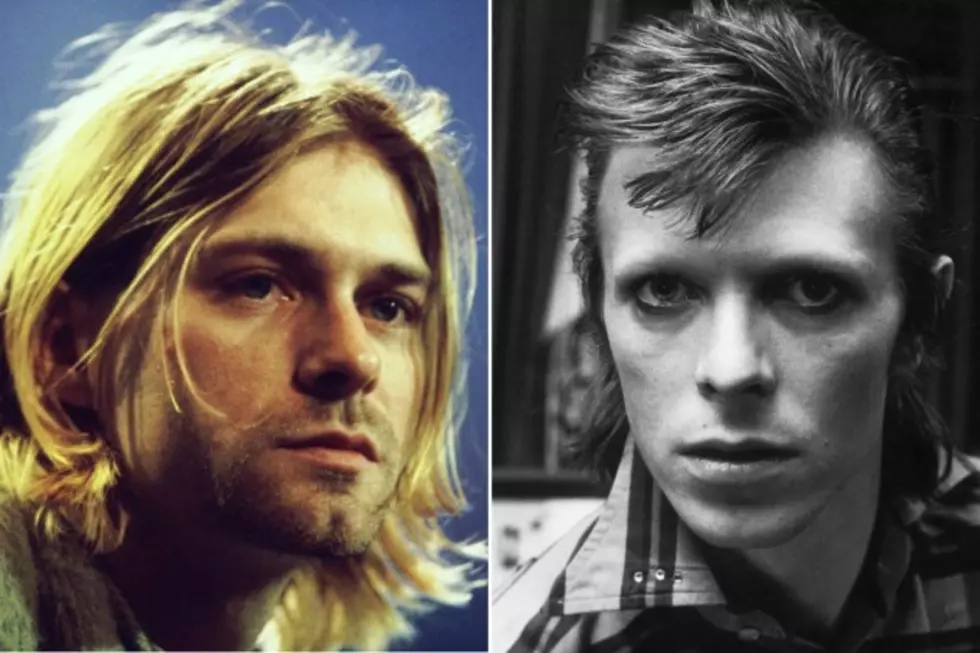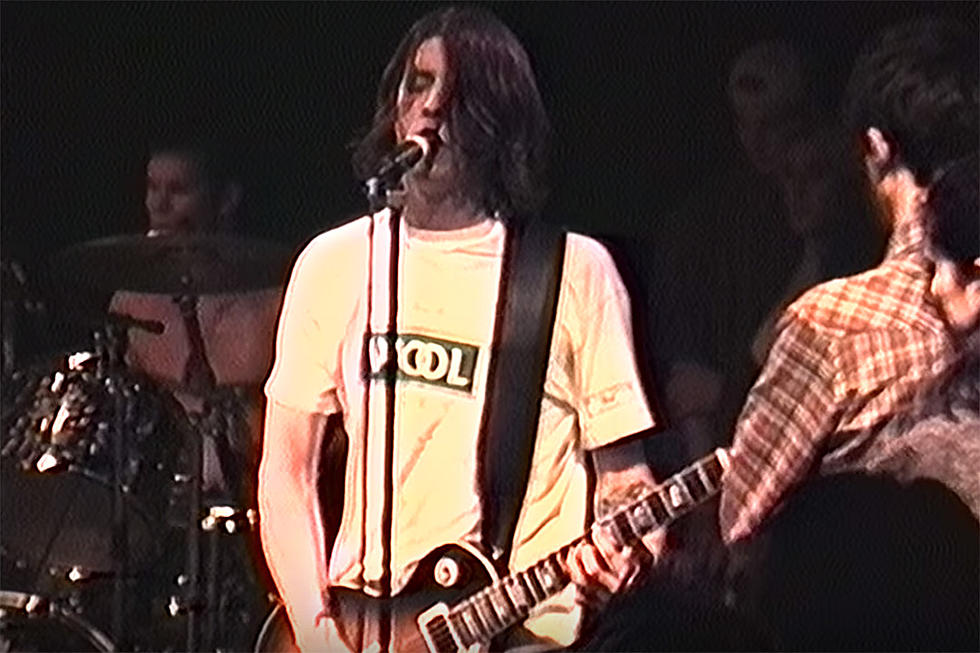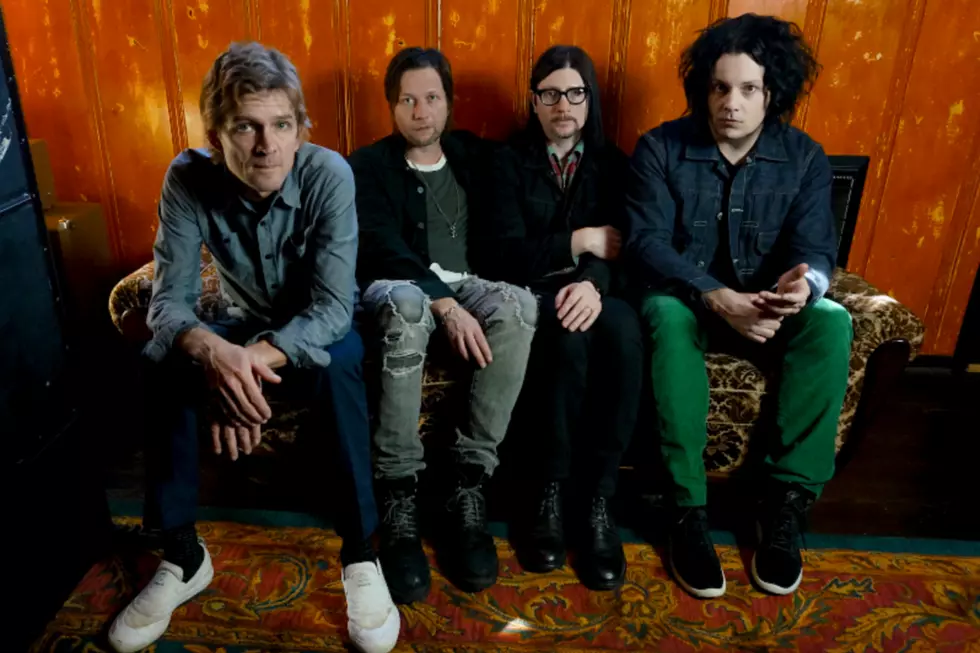
17 Cover Songs Better Than the Originals
Blasphemy. That's the word that shows up most often in the comment section of any list of cover songs deemed better than the original versions (right alongside the ubiquitous phrase, "you forgot about...").
What is it about the subject that causes people to go from zero to cyberbully in 6.2 seconds? Is it the implication that the original song – the one that's obviously beloved enough for someone to cover it and for most listeners to instantly recognize it – is somehow diminished by one writer's opinion? Is it that we live in a culture that embraces cover songs, nostalgia and movie franchise reboots more than anything entirely original? Or is it just that arguing about cover songs doubles the amount of fans (those of the original band and the cover band) who can be outraged?
Whatever the reason, it hasn't stopped us from assembling our own list of songs that take well-known source material and spin it into something amazing in its own right.
One ground rule here: Diffuser is an alternative music site, so we're only focusing on artists we actually cover. That means no Jimi Hendrix version of "All Along the Watchtower" and no Metallica version of "Turn the Page," whether or not you believe a list like this can legally exist without them.
Also, no, we didn't forget about ______. This is a subjective list. We're aware of Muse's rendition of "Please, Please, Please Let Me Get What I Want." We just don't think it's that much better than the Smiths' original version. (Apply that same methodology to Lenny Kravitz's take on "American Woman" and Pearl Jam's version of "Love, Reign Over Me" among many, many others.)
- 17
Cake, 'I Will Survive'
Originally by Gloria GaynorTo be fair, it isn't all that difficult to top the disco version of any song, but quirky California outfit Cake managed to do it with one of the genre's landmark hits. Gloria Gaynor released "I Will Survive" in 1978 and the original song – laced with disco beats and cheesy studio sax – is an anthem of enduring strength in the face of a failed relationship. But Cake tweaked the lyrics for their cover on 1996's Fashion Nugget, adding their distinct hot-rodding guitar sound and a trumpet solo that breathes fresh new life into the classic.
- 16
Nine Inch Nails, 'Dead Souls'
Originally by Joy DivisionOpinions are mixed on whether NIN's take on Joy Division's "Dead Souls" is superior to the original. The British post-punks released the song on their 1981 compilation, Still, and it's an undeniably gloomy piece. But Nine Inch Nails' version – the one most kids in 1994 didn't even realize was a cover when it showed up on the soundtrack to The Crow – trades atmosphere for driving industrialism and a jagged metal edge. Although Trent Reznor didn't make drastic changes, the NIN version is much more kinetic and anthemic.
- 15
Beck, 'Everybody's Got to Learn Sometime'
Originally by the KorgisBritish pop outfit the Korgis scored an international hit in 1980 with "Everybody's Got to Learn Sometime" – a forlorn ballad about love lost. The theme leant itself perfectly to the soundtrack of Michel Gondry's 2004 film, Eternal Sunshine of the Spotless Mind. And in the skillful hands of Beck and composer Jon Brion, it becomes a swelling orchestral number that would fit neatly on Beck's 2002 masterpiece, Sea Change. With somber piano and layers of wistful vocals, it's required listening for anyone in the midst of their own heartbreak.
- 14
Bjork, 'It's Oh So Quiet"
Originally by Betty HuttonWhen American actress and singer Betty Hutton released "It's Oh So Quiet" in 1951, the song was already a cover of a song written a few years earlier by Austrian composer Hans Lang and German lyricist Erich Meder. And although Bjork's update half a century later sticks faithfully close to Hutton's big band version, it takes on a kind of tongue-in-cheek naivety thanks in part to her theatrical delivery and cherubic innocence. It perfectly encapsulates the schizophrenic and dangerous business of falling in and out of love.
- 13
Foo Fighters, 'Baker Street'
Originally by Gerry RaffertyYou might not be all that familiar with the name Gerry Rafferty, but you'd definitely recognize some of the hits by the late Scottish singer-songwriter who rose to fame in the '70s thanks to songs like "Stuck in the Middle With You." His biggest hit, 1978's soft-rocking "Baker Street," is perhaps most identifiable by its distinct saxophone parts. Two decades later, Foo Fighters swapped out the sax in favor of searing lead guitar for their cover of the song, which was released as a B-side to "My Hero," and the result is a complete reinvention that feels vaguely familiar but altogether different. We also considered the Foos' covers of Prince's "Darling Nikki" and Gary Numan's "Down in the Park," but their take on "Baker Street" feels most obviously superior to the dated original.
- 12
Jose Gonzalez, 'Heartbeats'
Originally by the KnifeEnigmatic Swedish electronica duo the Knife unveiled "Heartbeats" in 2003 as the lead single from their genre-bending album, Deep Cuts. Built on a foundation of bouncy synths and quivering vocals, it fused together '80s nostalgia with modern aesthetics. But the following year, Swedish indie-folk artist Jose Gonzalez unveiled his own version on his debut, Veneer, completely reinventing the song as a sparse ballad with gently plucked, meandering guitar and his now-trademark muted vocals. Both versions are great, but Gonzalez turned "Heartbeats" into something more introspective and poignant.
- 11
No Doubt, 'It's My Life'
Originally by Talk Talk"It's My Life" is the title track from the second album by British new wave outfit Talk Talk and, while the track was only a modest success upon its release in 1984, it found a new audience six years later when the band released a greatest hits compilation. No Doubt decided to cover the song for their own greatest hits album in 2003 and it turned out to be a Grammy-nominated smash. Retaining much of the distinct synth line of the original but adding more rock dynamics (and, of course, the pouty vocal delivery of Gwen Stefani), No Doubt brought the song firmly into the 21st century with style.
- 10
The Postal Service, 'Against All Odds'
Originally by Phil CollinsThis one might come down to your personal feelings on Phil Collins. The Genesis member reportedly wrote "Against All Odds" during the sessions for his debut solo album but it became a worldwide hit as the theme song to the 1984 movie of the same name. But Death Cab for Cutie frontman Ben Gibbard updated it in 2004 with his side project, the Postal Service, for the soundtrack to the Josh Hartnett vehicle, Wicker Park. While Collins' version sounds inherently '80s, the Postal Service cover is thoroughly post-modern. Glitchy and understated, it pays just enough homage to the original while adding buoyancy and 21st century angst to the mix.
- 9
Gary Jules, 'Mad World'
Originally by Tears for Fears"Mad World" was the first big hit for British new wave duo Tears for Fears when it was released in 1982 and the synth-heavy song was reportedly written in part as an answer to Duran Duran's "Girls on Film." But it was reintroduced to Gen X and millennials by American singer-songwriter Gary Jules and composer Michael Andrews when they reimagined it as a much slower, more somber piano ballad for the 2001 cult classic, Donnie Darko. Jules' version is the definition of plaintive with only light touches of piano and mellotron behind the vocals, creating an unmistakeable sense of drama and melancholy missing from the original.
- 8
Reel Big Fish, 'Take On Me'
Originally by A-haThe original version of "Take On Me" was the one hit for noted one-hit wonders A-ha out of Norway (although they've been hugely successful in Europe for decades). The 1984 song garnered most of its attention from a cutting-edge video, but it's hard to deny its overwhelming catchiness. It was still a radio staple when ska-punks Reel Big Fish appropriated the song in 1998 for the soundtrack to the comedy BASEketball. Although plenty of bands have covered it over the years, the new wave keyboard parts lend themselves perfectly to the third wave ska trumpet and trombone sound of Reel Big Fish, creating an impossibly cheerful rendition that's even more addictive than the original.
- 7
Sinead O'Connor, 'Nothing Compares 2U'
Originally by the FamilyPrince wrote "Nothing Compares 2U" for one of his side projects, the Family, and released it on the band's self-titled (and only) album in 1985. But the song didn't find its way to the charts until Irish singer Sinead O'Connor covered it on her 1990 album, I Do Not Want What I Haven't Got. Whereas the original is a downtempo funk-jazz ballad, O'Connor turned it into a lush and soulful anthem at the dawn of the mainstream alternative revolution. Reportedly a reflection on the death of O'Connor's mother, the new version became a global sensation and led to her winning the first Grammy for Best Alternative Performance.
- 6
Failure, 'Enjoy the Silence'
Originally by Depeche ModeBritish synthpop group Depeche Mode released "Enjoy the Silence" on their incredible 1990 album, Violator, just as they were going a little bit darker and more foreboding. Built around a steady synthetic beat, it's an ominous love song that could also touch upon the depths of frontman Dave Gahan's heroin addiction with lyrics about all he ever wanted being "here in my arms." Los Angeles rock outfit Failure kicked off the 1998 Depeche Mode tribute album, For the Masses, with their own version that infuses guitar-driven dynamics and nu-metal sensibility (if that's not an oxymoron) that gives the song an intangible urgency.
- 5
Ryan Adams, 'Wonderwall'
Originally by OasisOnly songwriter Noel Gallagher knows for sure what "Wonderwall" is actually about, but the song – potentially the definitive Oasis track – has ascended to the status of post-modern folklore. While the lyrics are brimming with positivity and the promise that "you're gonna be the one that saves me," Americana-rock troubadour Ryan Adams turned the song into a sparse and mournful ballad for his 2003 EP, Love Is Hell Part 1. Both versions obviously have their merits, but Adams' take lends the song a dire new depth. Instead of brandishing upbeat optimism, Adams sounds like a man desperately clinging to his last chance at life.
- 4
Jeff Buckley, 'Hallelujah'
Originally by Leonard CohenIn certain circles and much of Canada, it's absolutely impossible to improve upon anything originally done by legendary crooner Leonard Cohen. But "Hallelujah" didn't create much of a stir when it was originally released on his 1984 album, Various Positions. It wasn't until Welsh musician John Cale covered it in 1991 that the song received widespread acclaim, inspiring troubadour Jeff Buckley to create his own version that appears on his 1994 album, Grace. While Cohen sang the song like a dirge, Buckley turned it into a delicate but soaring proclamation of beauty.
- 3
Johnny Cash, 'Hurt'
Originally by Nine Inch NailsThis one is divisive. The original version of "Hurt" written by Trent Reznor is a centerpiece on Nine Inch Nails' 1994 magnum opus, The Downward Spiral. A minimalist tale of self-destruction that slowly builds to a discordant crescendo, it's one of the band's singular works. But, in 2002, the legendary Johnny Cash put his own spin on the song for American IV: The Man Comes Around, which featured other contemporary covers. We love both versions, but the words have added weight coming from Cash – whose gravelly, wavering voice and lifetime of rockstar existence turn the song into something utterly transcendent.
- 2
Nirvana, 'The Man Who Sold the World'
Originally by David BowieDavid Bowie released "The Man Who Sold the World" as the title track to his 1970 album – his third since emerging in the British scene three years prior – and it was released as a B-side on the American singles for "Space Oddity" and "Life on Mars?". Like much of his work at the time, it features a kind of vague internal dichotomy between the character in the song and Bowie himself. The song wasn't all that well-known in the U.S. until Nirvana played it (along with several more obscure covers) during their now-legendary performance on MTV Unplugged in 1993. Although Nirvana's arrangement didn't deviate far from the original, the song – which Bowie has said is about a need to find out who you really are – takes on new resonance coming from Kurt Cobain. And, in hindsight, it feels especially haunting.
- 1
The White Stripes, 'Jolene'
Originally by Dolly PartonJack White is no stranger to covers: the White Stripes' self-titled 1999 debut featured versions of songs by Bob Dylan and bluesman Robert Johnson among others and we were this close to including his cover of U2's "Love Is Blindness" in this list. But the White Stripes' version of Dolly Parton's "Jolene" is like a force of nature. Stripping the original (released in 1973) down to its emotional core, he proves that a man can still sing a song written from a distinctly feminine point of view as long as he brings renewed passion to the subject matter. The Stripes released a studio version in 2000 as a B-side to the single "Hello Operator," but the live version released in 2004 captures the pure ferocity in all its glory.
- BONUS
Top 100 Alternative Albums of the '90s
[gallery galleryid="443:191411" showthumbs="yes" enablefullscreen="yes"]
More From Diffuser.fm









